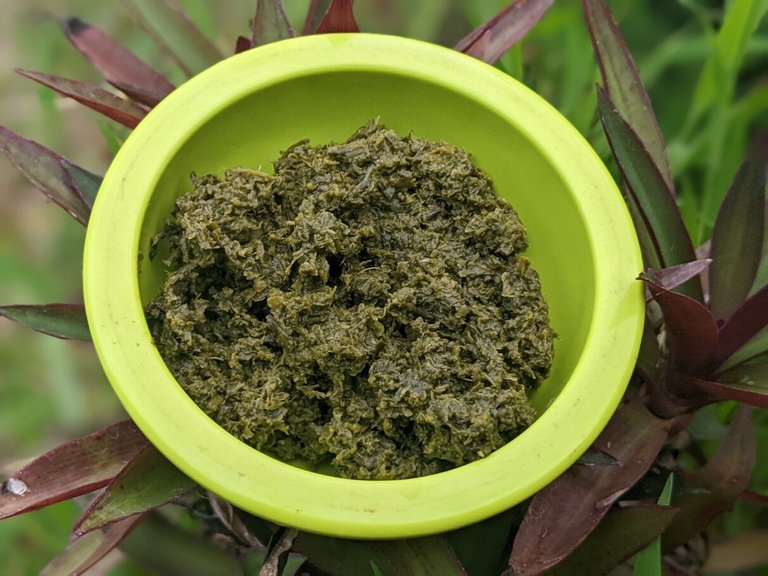
Greetings! Today I bring you another fermentation favorite of ours. This fermented basil paste will make you forget about Italian pesto. Though it isn’t quite the same thing, ever since we started fermenting fresh basil leaves we have used this as a base for dressings and sauces.
The other day we made a chickpea crust pizza with a pesto-like sauce made from this paste topped with fresh tomatoes, vegan homemade mozzarella cheese, and fresh rocket lettuce. Pure bliss!
Fermenting basil leaves is an excellent way to preserve their nutrients and essential oils. Plus while fermenting it will add a unique, delicious, tangy flavor to the basil paste. It’s also a great way to preserve fresh basil leaves from the garden.
Though we have some basil growing right now, the plants are not big enough yet to harvest so much basil to make this paste. But one of our Italian friends is growing basil in his hydro setup and had so much growing that he gave us some.
I made an extra jar to return the gesture! He already asked me when he can give me another batch of basil leaves in exchange for another jar. So I guess he likes this paste too!
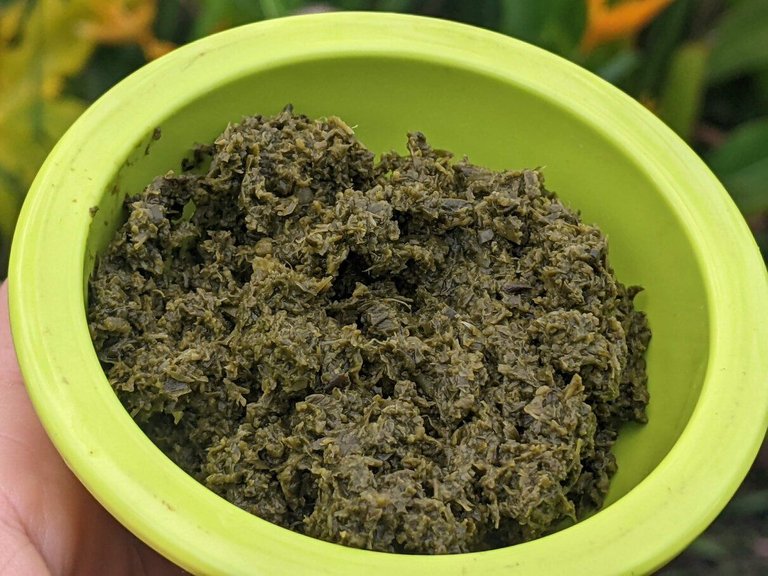
FERMENTED ITALIAN BASIL PASTE
A few months ago, I shared how we make fermented garlic paste, making this basil paste is quite similar.
No need for fancy equipment, you will find everything you need in your kitchen. The only thing you will need is patience as it takes about 2-3 weeks from start to finish.
This is again an example of one of our wild fermentation experiments. Other wild fermentation I have shared in the past include tepache, garlic paste, and apple cider vinegar. Unlike making kombucha or our vegan cashew yogurt where you need a fermentation starter to get the process going, fermenting basil paste relies on naturally occurring microorganisms to ferment the paste.
Ingredients (makes 1 jar)
- 4 cups of fresh Italian basil leaves, packed
- 3 cloves of garlic
- ½ tsp Himalayan pink salt or sea salt
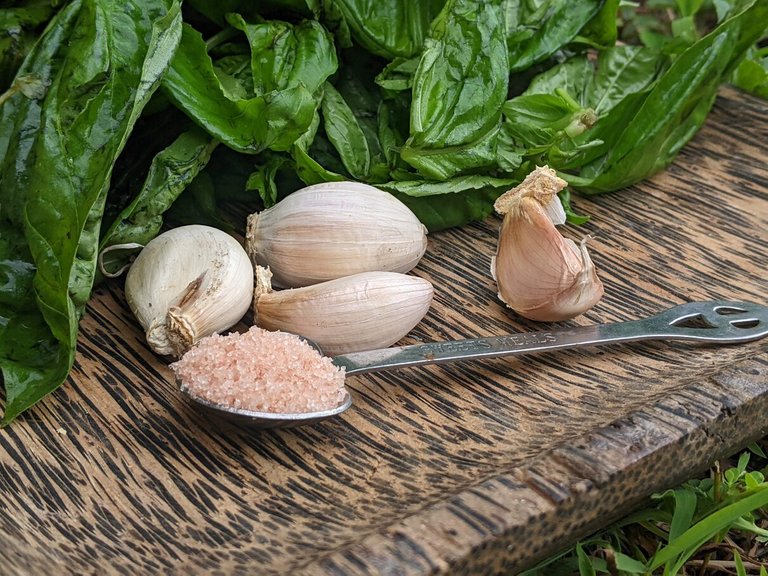
Directions
Wash basil leaves and pat dry.
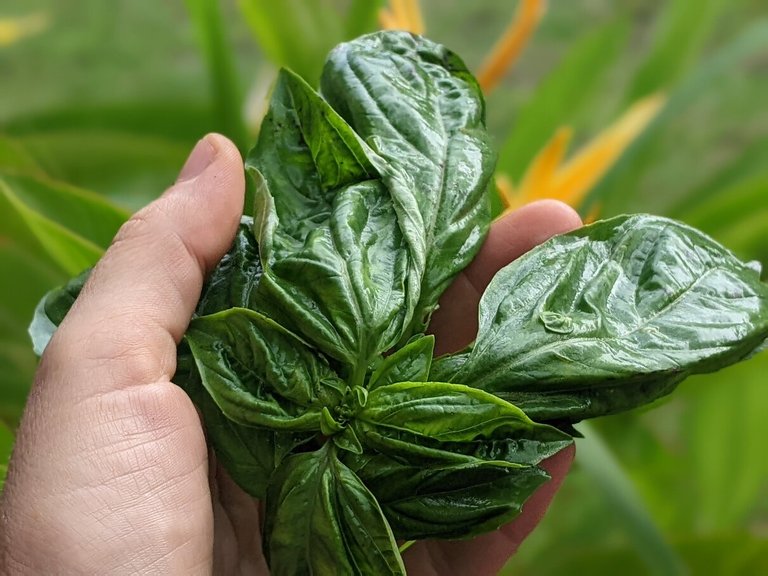
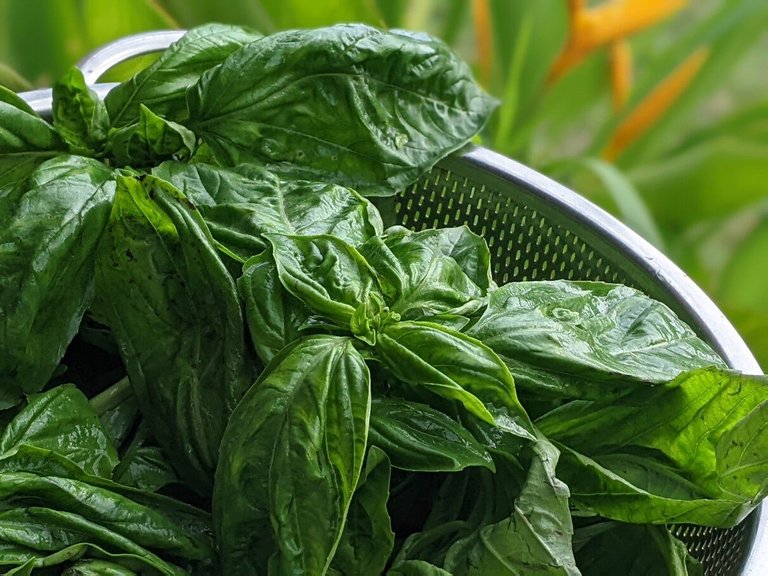
Add the fresh basil leaves, garlic, and salt to a food processor or blender. Process until you have a smooth paste. Scrape down the sides while blending to make sure no big leaf or garlic lumps remain. Taste and add more salt if you like. If your food processor is too small, blend the leaves in smaller batches.
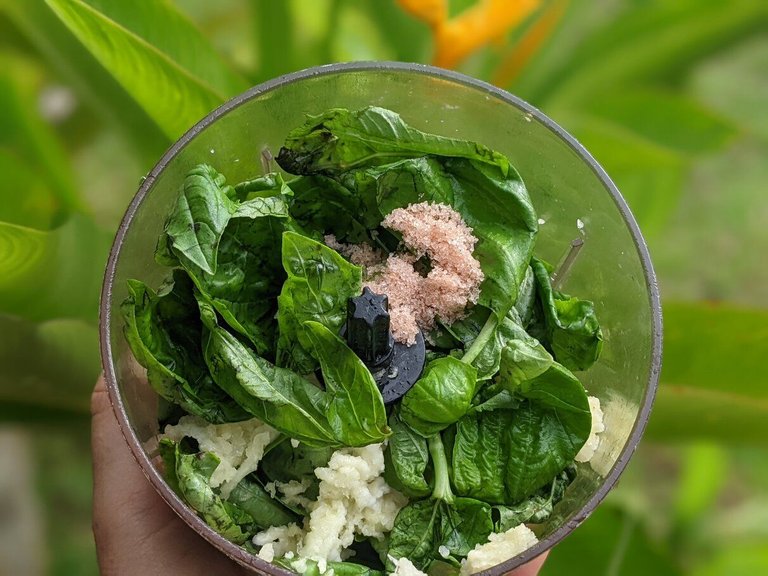
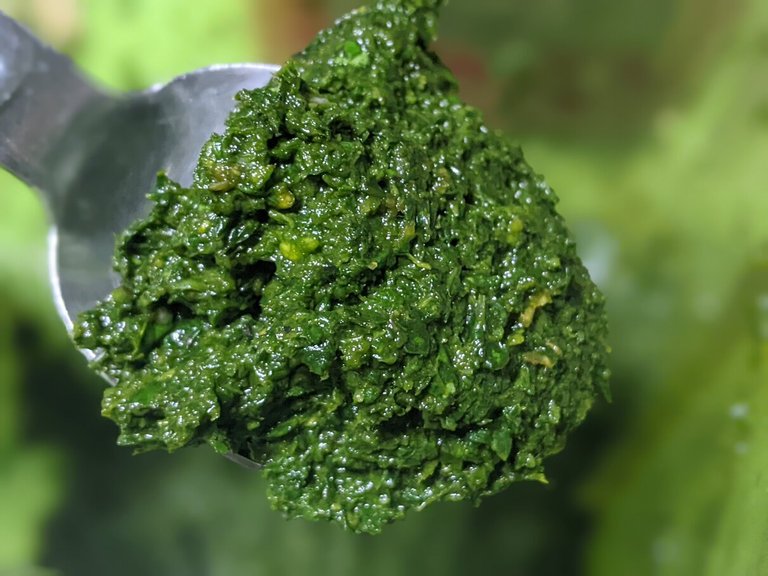
Add the paste to a small, clean jar. Leave about 2.5 cm or 1 inch of space from the top.
Press down the paste with a tamper or spoon. The natural liquid (brine) present in the leaves will come up and cover the paste when pushed down. Then add a fermentation weight if you have one to make sure the paste stays submerged to reduce exposure to air and prevent mold to grow on top.
If you don’t have a fermentation weight you can use baking paper pushed into the jar and weighed down with marbles, a plastic ziplock bag filled with water, or this green plastic thing I use. I recycled them from jars of gherkins, olives, and slivered onions. Cut off the stick used to lift the gherkins and you will be left with a perfect device to weigh down your ferments.
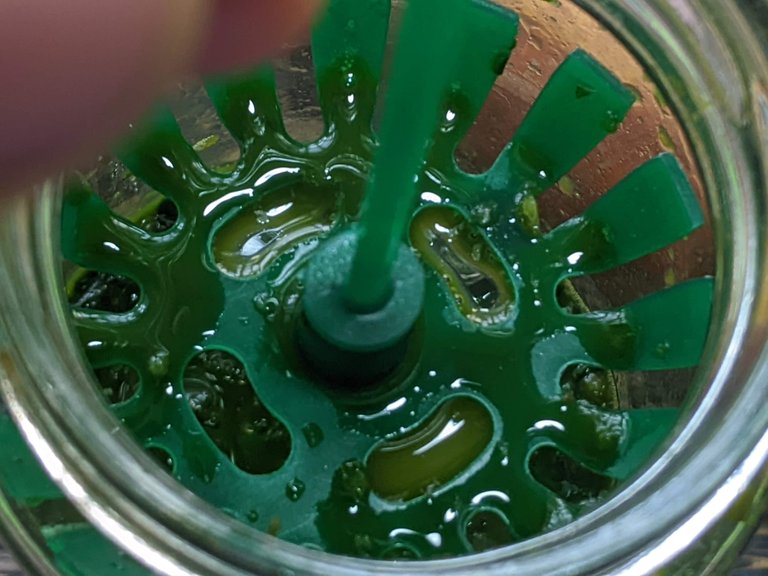
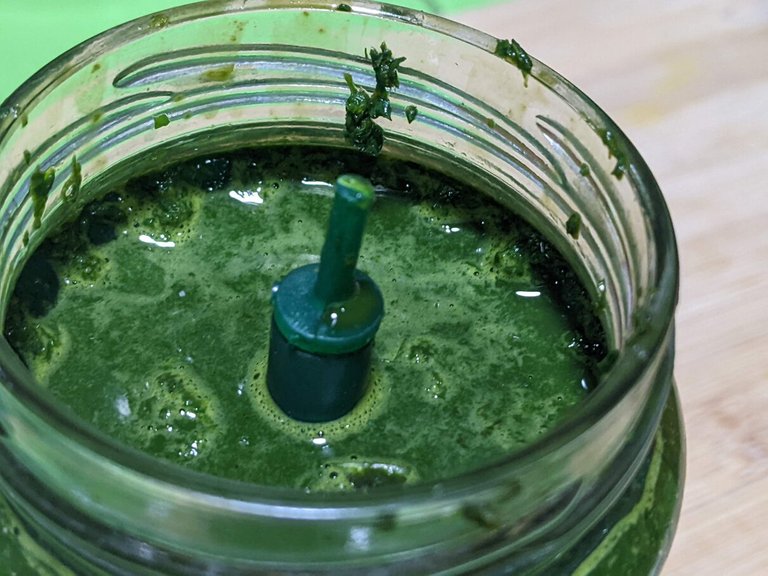
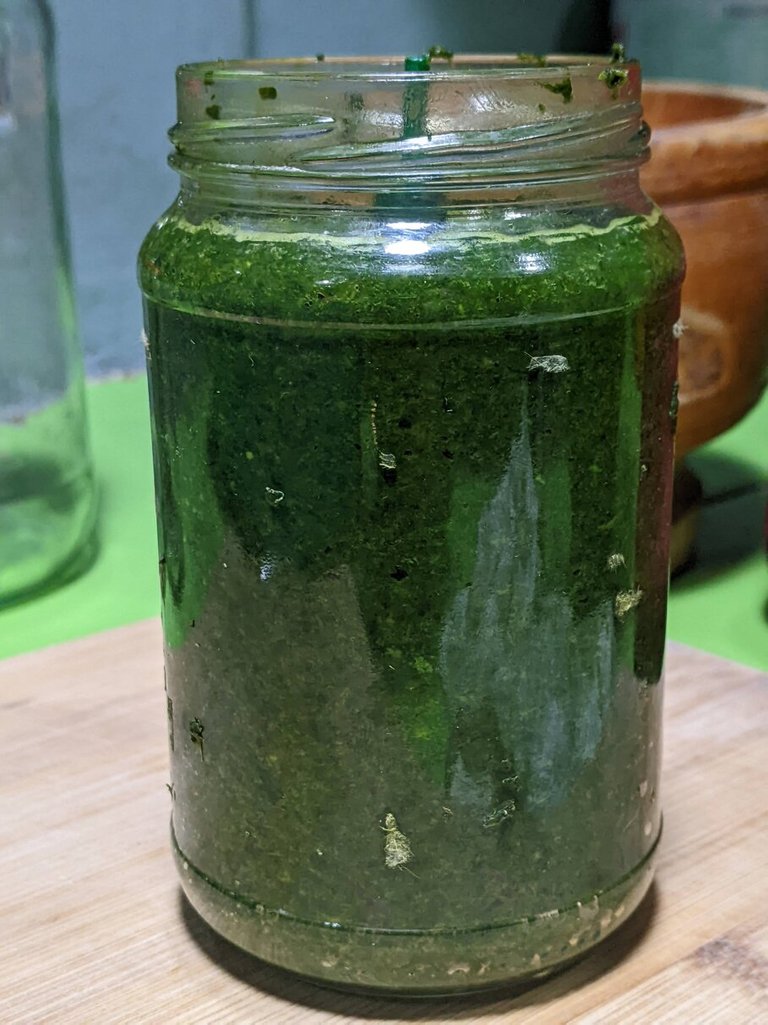
Close the jar with the lid and set it on the counter out of direct sunlight for 14 to 21 days. I live in the tropics so things go a little faster here.
While the paste is fermenting it will thicken a little, so make sure to check it daily to make sure the paste is still submerged in the brine. If it is no longer submerged, press down again. Every few days open the lid to let out the fermentation gasses.
After just a few days you will start to see bubbles appearing, this is a sign that the fermentation is going well!
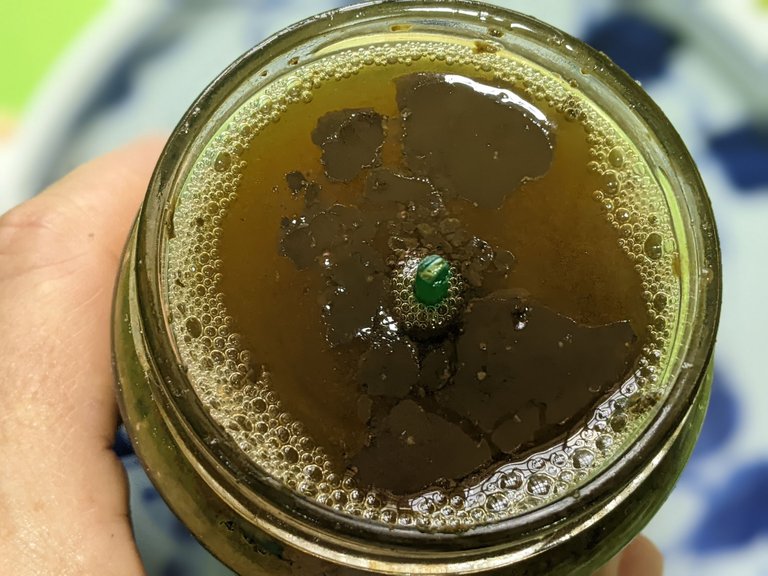
FYI: I have made this basil paste quite a few times now and there was always enough natural liquid enough to keep the paste submerged at all times. If, however, you find yourself lacking liquid to cover the paste, simply add a little salty brine on top. The ratio of a salty brine is ½ tablespoon of salt in ½ cup of filtered water. Mix well to dissolve all the salt.
Start tasting after 14 days. When it has reached your preferred level of tanginess, store it in the fridge. You can store this paste for many months, though you will find that you will go through the jar quite fast!
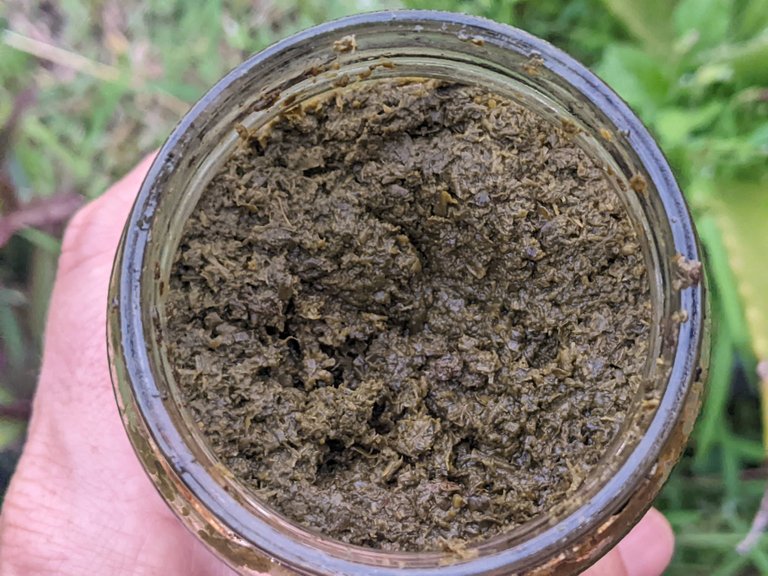
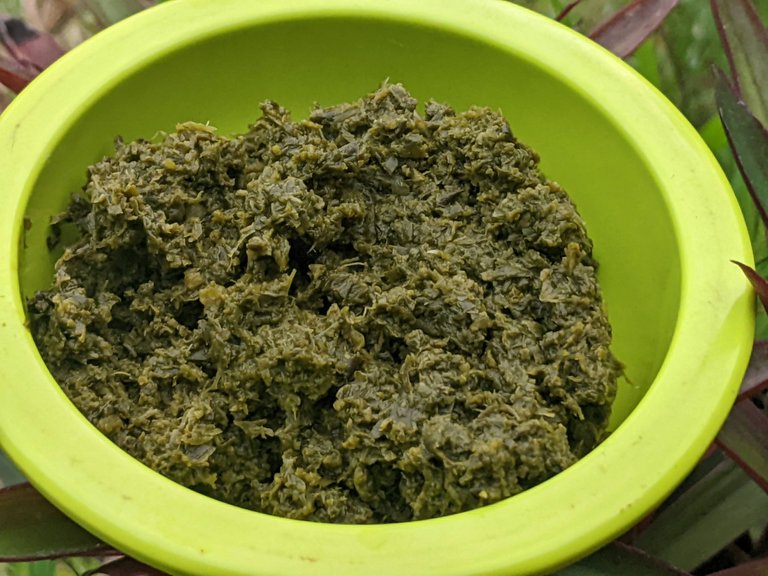
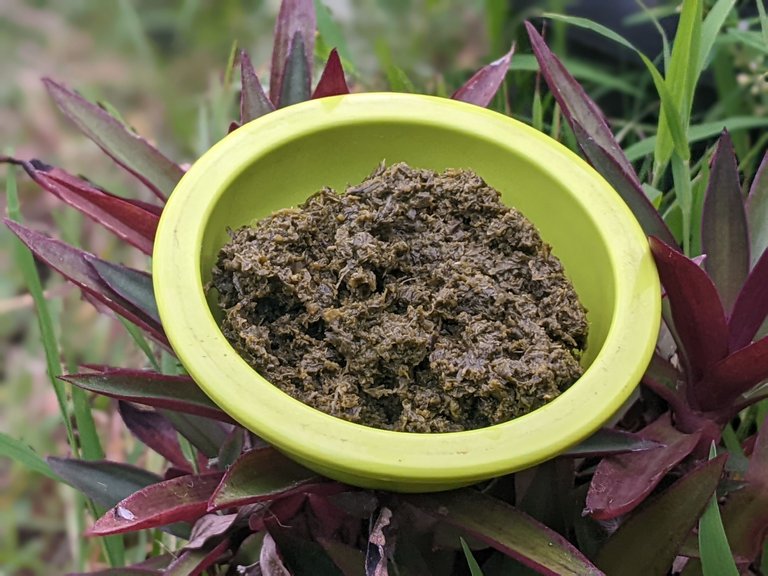
WISHING YOU ALL A HAPPY AND HEALTHY DAY ღ ღ ღ

ALL CONTENT IS MINE AND ORIGINAL!
PICTURE(s) TAKEN WITH GOOGLE PIXEL 3 XL
LET'S CONNECT!
🥑🍓🍆 FIND MORE YUMMY PLANT-BASED CREATIONS BELOW 🥑🍓🍆
QUINOA CARROT BURRITOS WITH ROASTED VEGGIES
BLOOD ORANGE-INFUSED SPELT CINNAMON ROLLS
By the looks of it your Italian Basil looks delicious. So I sure would like to give it a try.Hey @amy-goodrich I love the tangy flavor of food that develops once we ferment it though I have to admit I have never tried fermented Basil.
On that note I would like to invite you to join Leo quest a $10000 Prize pool initiative which anyone can join and win by doing simple tasks like commenting on a hive post.
You can join the quest here here
Thank you. We love fermented foods. If you ever try this basil garlic paste, let me know what you think of it! Thanks for stopping by.
This looks so good. Never thought about this!! I really need to add this to my fermentation list. I have some wonderful lemon basil, I think the fermentation will be good with that addition as well!
Thanks! I know you like your fermentation projects too! I think it will turn out great with lemon basil. Happy fermenting.
Thank you so much! Sorry for only replying now.
I also thinking about fermenting some wild sages with lemons. My lemon tree is carrying so many lemons this year. Happy fermenting!
Thank you 💚🙏
Whoa, I have some basil plants in my yard. Never thought I'd make this, when you do, I'm excited to try it too!
I hope you try to ferment some basil too. Soooo gooood! Let me know what you think of to if you tried it. Have a beautiful day.
I love basil, however I have never tried it fermented, it is definitely a recipe that I have to make.🌷🌺🌸
Greetings from Margarita Island. 🤗🌼
Congratulations @amy-goodrich! You have completed the following achievement on the Hive blockchain And have been rewarded with New badge(s)
Your next target is to reach 13500 replies.
You can view your badges on your board and compare yourself to others in the Ranking
If you no longer want to receive notifications, reply to this comment with the word
STOPCheck out our last posts:
Support the HiveBuzz project. Vote for our proposal!
This is great. I've got some sweet basil that's gone to seed and since we're coming in to winter where I am in the southern hemisphere they'll likely die off soon. I'll give this a go and share a post about it. I doubt there's four cups worth of leaves there but that's okay, I can scale down the ingredients a bit. Thanks for sharing your wild fermentations!